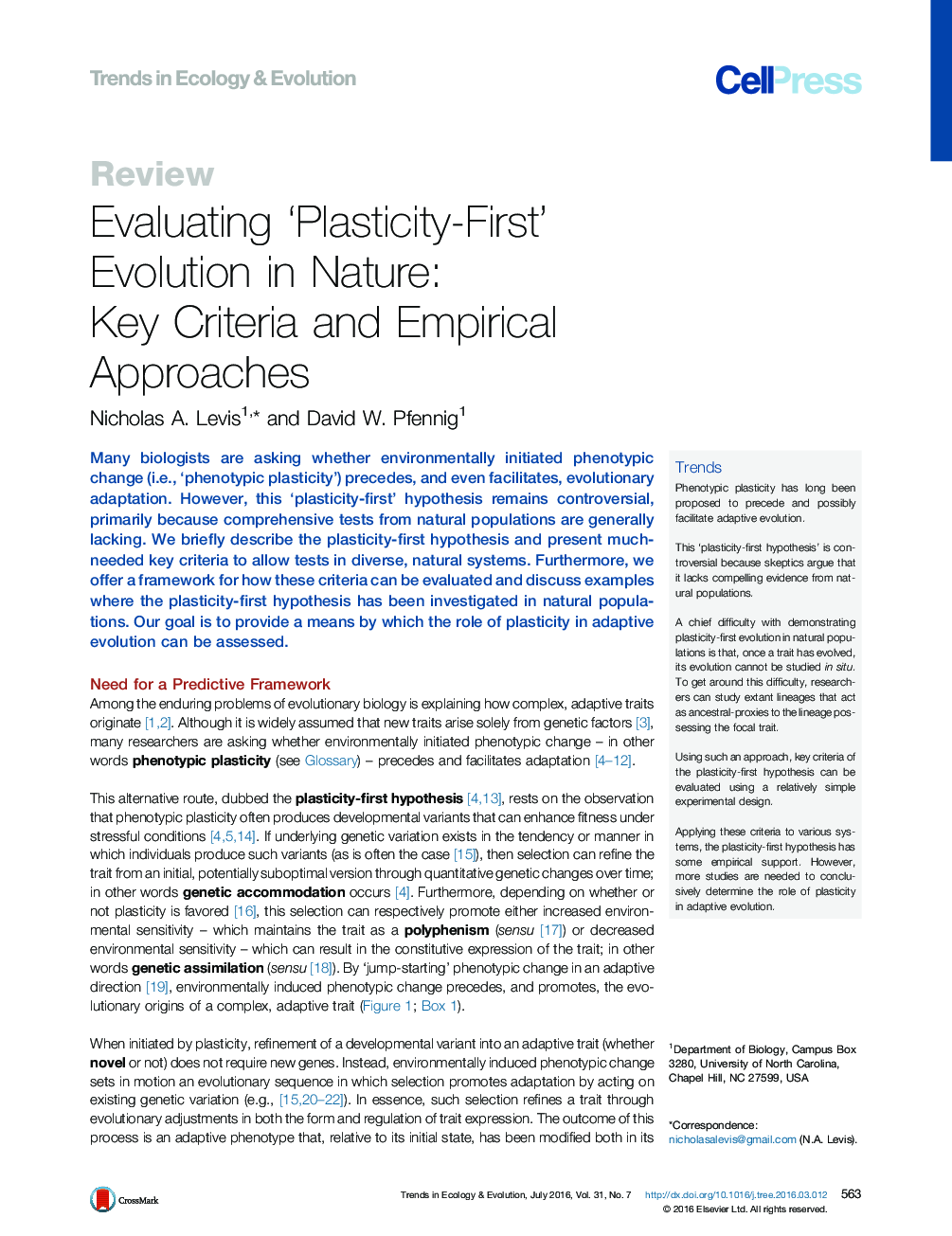| کد مقاله | کد نشریه | سال انتشار | مقاله انگلیسی | نسخه تمام متن |
|---|---|---|---|---|
| 142296 | 163095 | 2016 | 12 صفحه PDF | دانلود رایگان |
Many biologists are asking whether environmentally initiated phenotypic change (i.e., ‘phenotypic plasticity’) precedes, and even facilitates, evolutionary adaptation. However, this ‘plasticity-first’ hypothesis remains controversial, primarily because comprehensive tests from natural populations are generally lacking. We briefly describe the plasticity-first hypothesis and present much-needed key criteria to allow tests in diverse, natural systems. Furthermore, we offer a framework for how these criteria can be evaluated and discuss examples where the plasticity-first hypothesis has been investigated in natural populations. Our goal is to provide a means by which the role of plasticity in adaptive evolution can be assessed.
TrendsPhenotypic plasticity has long been proposed to precede and possibly facilitate adaptive evolution.This ‘plasticity-first hypothesis’ is controversial because skeptics argue that it lacks compelling evidence from natural populations.A chief difficulty with demonstrating plasticity-first evolution in natural populations is that, once a trait has evolved, its evolution cannot be studied in situ. To get around this difficulty, researchers can study extant lineages that act as ancestral-proxies to the lineage possessing the focal trait.Using such an approach, key criteria of the plasticity-first hypothesis can be evaluated using a relatively simple experimental design.Applying these criteria to various systems, the plasticity-first hypothesis has some empirical support. However, more studies are needed to conclusively determine the role of plasticity in adaptive evolution.
Journal: - Volume 31, Issue 7, July 2016, Pages 563–574
